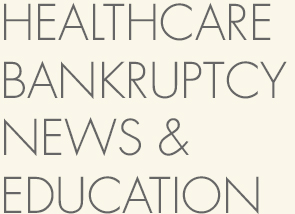Why Debtors Choose Repayment, Not Liquidation
Chapter 13 Bankruptcy, also known as a “wage earner’s plan,” allows individuals with regular income to develop a plan to repay all or part of their debts. The repayment plan may include installment payments to creditors for a period of three to five years.
If the debtor’s monthly income is less than the state median, the plan will be for three years unless the court approves a longer period “for cause.” If the debtor’s current monthly income is greater than the applicable state median, the plan generally must be for five years. In no case may a plan provide for payments over a period longer than five years. During this time the law forbids creditors from starting or continuing collection efforts.
4 Advantages of Chapter 13
Chapter 13 offers individuals four key advantages over chapter 7 liquidation:
1. Prevent Home Foreclosure – The most important advantage is the opportunity to save their home from foreclosure. By filing under this chapter, individuals can stop foreclosure proceedings and may catch up on delinquent mortgage payments over an extended time; however, all Chapter 13 mortgage payments must be paid on time.
The debtor may still lose their home if the mortgage company completes the foreclosure sale before the debtor files the petition, or if they fail to make mortgage payments that come due after the chapter 13 filing.
2. Extend Debt Repayment Periods – Additionally, Chapter 13 bankruptcy allows individuals to reschedule secured debts and extend them over the life of the Chapter 13 plan which can lower payments.
3. Protect Debt Co-Signers – Chapter 13 also has a special provision that protects third parties who are co-signers on consumer (personal, family, or household purposed) debts.
4. Consolidate Debts – Finally, chapter 13 acts like a consolidation loan under which the individual makes the plan payments to a chapter 13 trustee who then distributes payments to creditors. Individuals will have no direct contact with creditors while under chapter 13 protection.
Chapter 13 is often used to cure missed mortgage payments, escape “underwater” mortgages, and pay off IRS tax payments for any individual, even the self-employed or an unincorporated business-owner, as long as their unsecured debts are less than $383,175 and their secured debts are less than $1,149,525.



